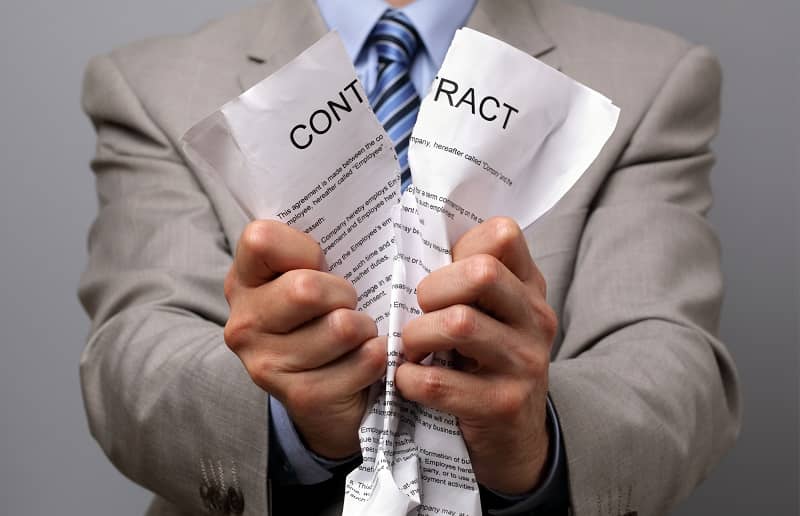Contract disputes are an absolute pain, but they’re a common reality in the construction industry. With so many differences of opinion, personalities, and interests, friction is bound to arise every once in a while. The key is knowing how to most efficiently handle these disputes so you can save valuable resources.
Reach out directly.
At the first sign of a potential contract dispute, it’s crucial to open up direct communication with the relevant party. Getting ahead of the issue demonstrates how seriously you take the relationship with stakeholders and gives them confidence in your ability to resolve it. You’ll also have an easier time solving a problem that hasn’t gotten out of control or soured relationships already. Keep in mind that direct negotiation is the most cost effective method, so there’s a lot riding on this initial effort. Hear out what the party has to say, and see if the problem can be addressed without further complications.
Use a mediator.
Everyone involved in the contract dispute wants to get the issues solved, but it’s not always possible to rectify the difference of opinions and goals between two parties doing business. When direct negotiation fails, the next step is to find an independent, third-party as a mediator. This is a private and unofficial process where disputing parties collectively agree on an impartial intermediary to hear out both sides and find common ground. Not only is this a viable way to avoid litigation, but it’s often required in many states before officially pursuing legal means.
Seek out arbitration.
When direct negotiation and third-party mediation fail, you’ll want to give arbitration a shot. In fact, many construction contracts explicitly state arbitration is necessary for contract disputes before formal litigation. During the arbitration, both parties argue their points of view in front of arbitrators who are usually experts in the relevant area. While quicker and less costly than taking a case to court, arbitration doesn’t make room for appeals. Unless you’re confident you’ll come out victorious, you might want to consider taking things directly to the legal system.
Take it to court.
Nobody wants to end up in court. But, there are times when contract disputes can’t be settled any other way. While expensive and time-consuming, the good news about formal courts is the decisions are appealable just in case the initial decision isn’t in your favor. Litigation will either take place in front of a judge or jury depending on the specifics of the case. Many construction businesses include clauses in their contracts requiring suing parties to pay legal fees if they lose a case. This way, you have some protection from false litigation
4 Tips for Avoiding Contract Disputes
1. Use a lawyer.
It’s tempting to skimp out on contracts either by copy-and-pasting previously used versions or drafting up something on your own. All the time and money you might save by taking these shortcuts will pale in comparison to the resource-sucking reality of litigation. Having an industry-specific and experienced lawyer draft your contracts will help protect you from litigious clients.
2. Avoid bad actors.
No industry is free from unfaithful actors that make things harder than they have to be, seek out controversy, or actively take advantage of people. As a project manager, your job isn’t just to land more leads. You should also know when to turn away a potential business because of the merits of it’s also to know which business to turn away.
3. Communicate with clients.
Communication is a critical component of running a construction business. There should be just as much interchange between construction businesses and clients during the project as there is beforehand. Ongoing communication keeps clients up to date, manages expectations, catches issues early, and creates a greater sense of trust and dependability.
4. Hire the right people.
Having an unreliable, poorly trained, and ineffective team is a surefire way to stir up ongoing contract disputes. On the other hand, a highly capable team of qualified craftsmen can keep maintaining your construction business’s quality, efficiency, and productivity. This leads to happier customers and fewer issues.
Further Reading: 5 Advantages of Outsourcing Construction Staffing
Not able to find the craftsmen talent you need to succeed? You’re in the right place! For over a decade, the expert staffers at Madden Craftsmen have been providing local construction leaders with qualified and dependable employees. Submit a job order today or visit our employer resources page for more info.




